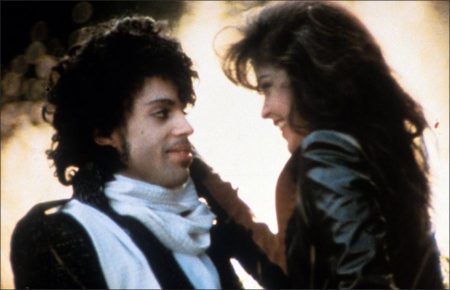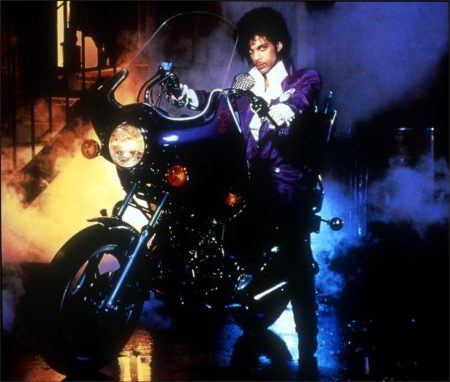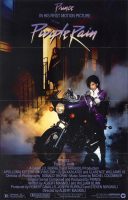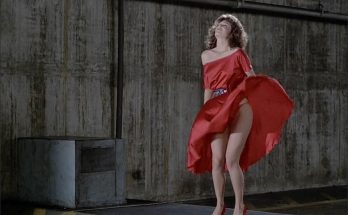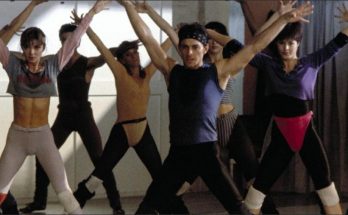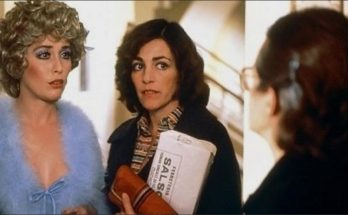Purple Rain movie storyline. A young man with a talent for music has begun a career with much promise. He meets an aspiring singer, Apollonia, and finds that talent alone isn’t all that he needs. A complicated tale of his repeating his father’s self destructive behavior, losing Apollonia to another singer (Morris Day), and his coming to grips with his own connection to other people ensues.
Purple Rain is a 1984 American rock musical drama film directed by Albert Magnoli, produced by Robert Cavallo, Joseph Ruffalo, and Steven Fargnoli, and written by Magnoli and William Blinn. The film inspired the soundtrack and studio album of the same name.
The film stars Prince in his acting debut, playing a quasi-biographical person called “The Kid.” Purple Rain was developed to showcase his talents and hence contains several extended concert sequences. The film grossed more than US $35 million at the box office in the United States and over 220 million worldwide, thus making a large profit on its $7.2 million budget. Purple Rain is the only feature film that Prince starred in but did not direct.
The film won an Academy Award for Best Original Song Score, currently the last to receive the award, for the soundtrack of the same name. It was nominated for two Razzie Awards: Worst New Star for Apollonia Kotero and Worst Original Song for “Sex Shooter”. A semi-sequel, Graffiti Bridge, was released in 1990.
About the Story
“The Kid” is the talented but troubled frontman of his Minneapolis-based band The Revolution. To escape his difficult home life – his father is verbally and physically abusive, and his mother is emotionally abusive – he spends his days rehearsing and his nights performing at the First Avenue nightclub. First Avenue’s three house band slots are held by The Revolution, the flashy Morris Day and his group The Time, and Dez Dickerson and his group The Modernaires.
Morris, aware that The Revolution’s guitarist Wendy and keyboardist Lisa are frustrated by the Kid’s unwillingness to play their compositions, lobbies Billy Sparks, the nightclub’s owner, to replace The Revolution with a girl group which Morris is already forming. He targets the Kid’s girlfriend Apollonia – an aspiring singer and new arrival in Minneapolis – to lead his group, and tries to persuade her that the Kid won’t help her because he’s too focused on himself. She eventually joins Morris’s group, which Morris names Apollonia 6. When she reveals her partnership to the Kid, he becomes furious and slaps her, as his father had struck him earlier.
At the club, the Kid responds to the internal band strife, the pressure to draw more crowds, and his strained private life with the uncomfortably personal “Darling Nikki”. His performance publicly humiliates Apollonia, who runs off in tears, and angers both Morris and Billy, worsening his situation. Billy confronts the Kid, castigating him for bringing his personal life onto the stage and warning him that he’s wasting his musical talent like his father did. The debut of Apollonia 6 is a success, and Billy warns the Kid that his First Avenue slot is at risk.
The Kid seizes Apollonia from a drunken Morris and the two argue; Apollonia then abandons him. Returning home, he finds the house in tatters, with his mother nowhere to be found. When he turns on the basement light, his father – who had been lurking in the basement with a loaded handgun – shoots himself in the head. In a frenzy after a night of torment, the Kid tears apart the basement to release his anger, only to find a large box of his father’s musical compositions. The next morning, the Kid picks up a cassette tape of one of Wendy and Lisa’s compositions, a rhythm track named “Slow Groove”, and begins to compose.
Purple Rain (1984)
Directed by: Albert Magnoli
Starring: Prince, Apollonia Kotero, Morris Day, Olga Karlatos, Clarence Williams, Jerome Benton, Jill Jones, Brenda Bennett
Screenplay by: Albert Magnoli, William Blinn
Production Design by: Ward Preston
Cinematography by: Donald E. Thorin
Film Editing by: Albert Magnoli, Ken Robinson
Costume Design by: Marie France
Set Decoration by: Anne D. McCulley
Art Direction by: Maria Caso
Music by: Michel Colombier, Prince
Distributed by: Warner Bros. Pictures
Release Date: July 27, 1984
Views: 138
